Russian nuclear accident: Medics fear 'radioactive patients'
- Published
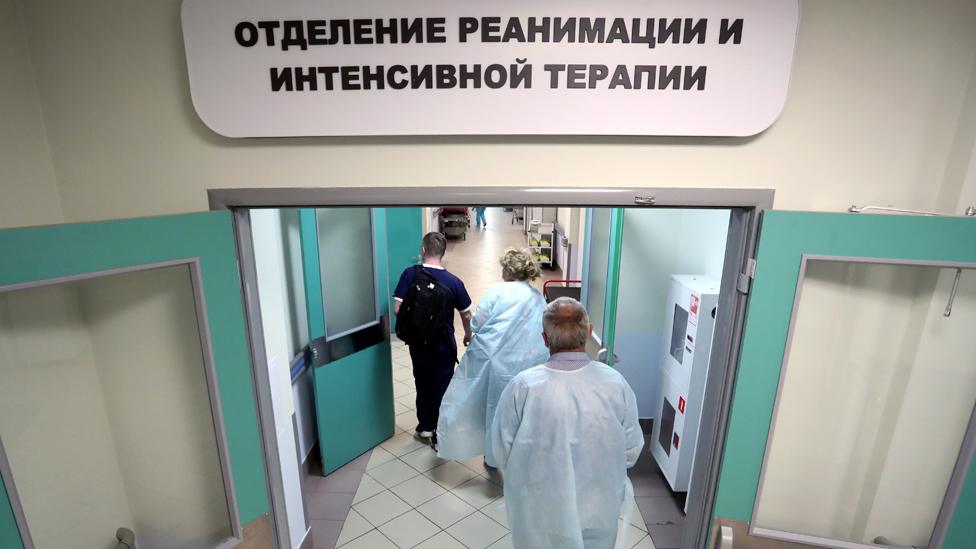
Irradiated victims of a Russian weapons test were taken to civilian hospitals (archive pic)
Russian medics who treated radiation victims after a military explosion in the Arctic had no protection and now fear they were irradiated themselves.
Two of the medics in Arkhangelsk spoke to BBC Russian about the victims' evacuation, on condition of anonymity.
Five nuclear engineers died on 8 August when an "isotope-fuel" engine blew up at the Nyonoksa test range, officials said. Two military personnel also died.
President Vladimir Putin said the test involved a new weapon system.
Six people were injured in the accident, but officials gave few details about it.
On 14 August Russia's weather service Rosgidromet revealed that radiation levels had spiked 16 times above normal, in Severodvinsk, a city 47km (29 miles) east of Nyonoksa.
According to the official data, the radiation that reached Severodvinsk was not heavy enough to cause radiation sickness.
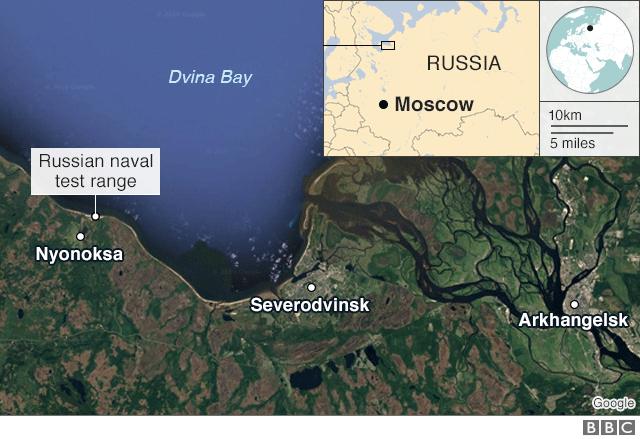
Experts in Russia and the West say the test was most likely linked to the new 9M730 Burevestnik nuclear-powered cruise missile, called "Skyfall" by Nato. Last year Mr Putin said the technology would give the missile "unlimited" range.
The Arkhangelsk medics, who spoke to the BBC's Pavel Aksenov, said at least 90 people came into contact with the casualties, but the military did not warn them of any nuclear contamination risk.
Contamination fears
The medics were at the civilian Arkhangelsk regional hospital, which treated three of the injured, while three other casualties were taken to an Arkhangelsk hospital called Semashko, which is equipped for radiation emergencies.
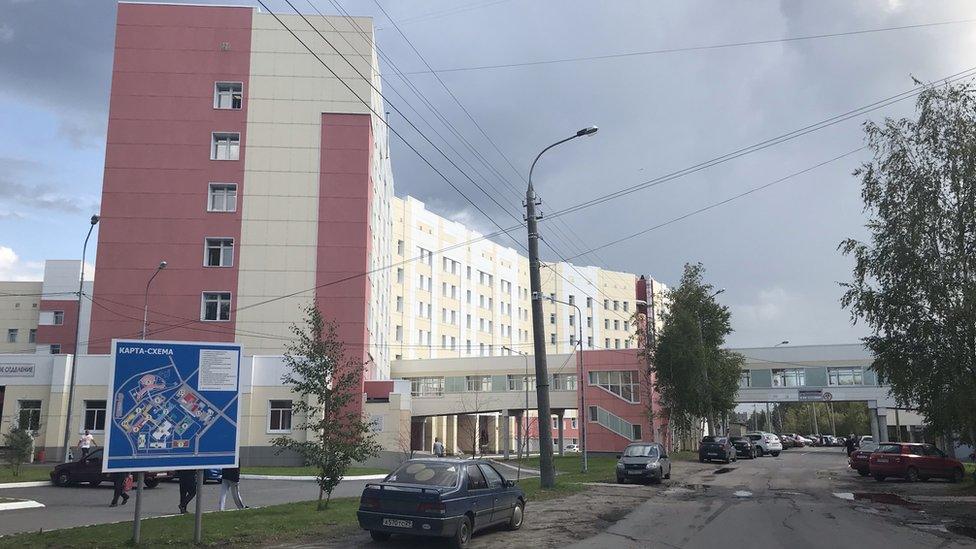
Three radiation victims were brought to the Arkhangelsk regional hospital
The medics said they were speaking out now because they feared for their own health and did not want any similar "[safety] violations" to recur.
"We don't want them to bring us next time not three, but ten people, God forbid, and hide the information from us again," said one.
The degree of secrecy surrounding the explosion has drawn comparisons with the 1986 Chernobyl disaster, when Soviet officials were slow to admit the truth.
President Putin says a new cruise missile will have 'unlimited' range
The Arkhangelsk medics said it was clear that the three brought to their regional hospital were very sick. Doctors examined them in the emergency room, then sent them to an operating theatre.
But the emergency room continued to admit other patients for about an hour, the medics said, until the doctors realised that the three "had received a very high radiation dose". The hospital handles pregnancy complications and other difficult medical conditions.
"The radiation picture was developing by the hour. Blood tests were being done, and every hour you could see that this or that cell count was plunging. That signified a very high radiation dose," they said.
The hospital staff kept treating the victims despite knowing about the radiation dose. The staff had to improvise some self-protection - for example, they took face masks from the helicopter crews' emergency kit.
The next day the three victims were transferred to a hospital in Moscow which has radiation specialists. Their condition now is unknown.
Nuclear decontamination
A military team later carried out decontamination work in the Arkhangelsk hospital.
The medics said the casualties' clothing was removed, along with stretchers and a "highly radioactive bath".
"Our cleaners should have been advised, they're just simple country folk, they were just picking up sacks and bundles and carrying them out," said one.
The other medic said hospital staff were now mentally stressed, knowing that radiation safety information had been withheld from them during the emergency.
Two weeks after the explosion the Russian health ministry said none of the medics at the Arkhangelsk hospitals had received a hazardous radiation dose. Its conclusion was based on medical examination of 91 staff.
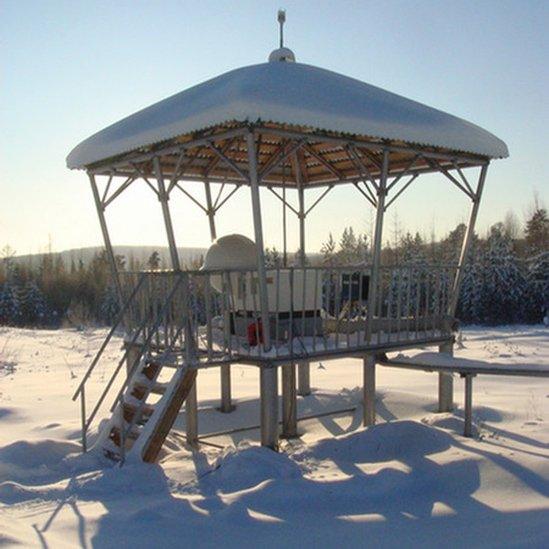
One of Russia's radiation monitoring units, in Peleduy (Dec 2007 pic)
Incomplete data
On Monday an international nuclear agency reported that the two Russian radiation monitoring stations nearest to Nyonoksa had gone offline soon after the explosion. The revelation fuelled suspicions that the radiation could have been heavier than officially reported.
The Comprehensive Nuclear Test-Ban Treaty Organization (CTBTO) said the technical failure at those sites was then followed by a failure at two more. It tweeted an animation showing the potential radiation plume from the explosion.
Russia said the weapons test was none of the CTBTO's business, and added that handing over radiation data was voluntary. Two of the monitoring stations have since started working again.
Allow X content?
This article contains content provided by X. We ask for your permission before anything is loaded, as they may be using cookies and other technologies. You may want to read X’s cookie policy, external and privacy policy, external before accepting. To view this content choose ‘accept and continue’.
- Published14 August 2019
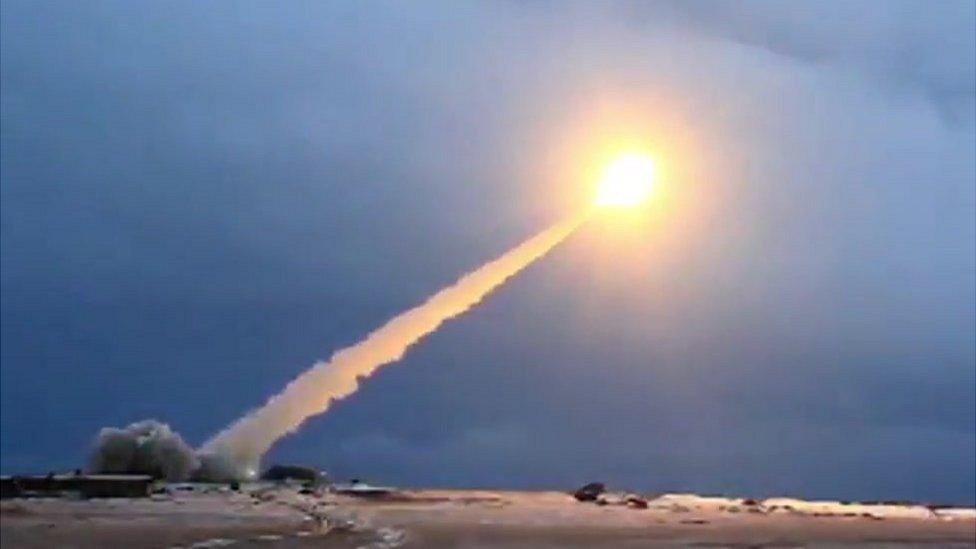
- Published12 August 2019
